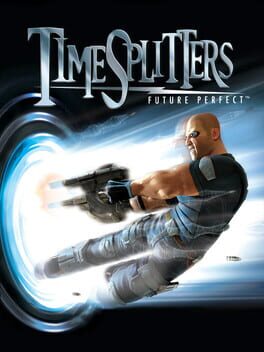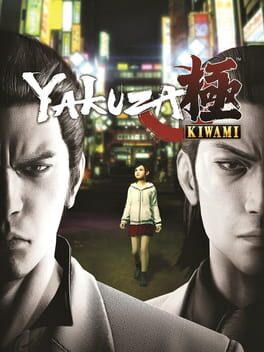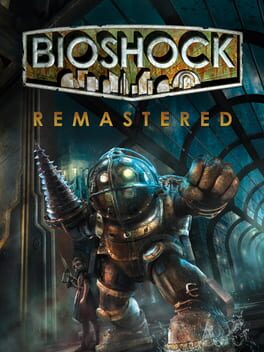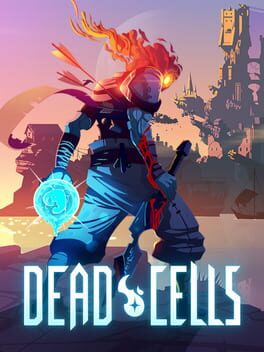Zaphy
7 reviews liked by Zaphy
Find All
2021
A cute little hidden object game that has you hunting for a variety of objects in a black and white world that fills in as you find things. There are 4 achievements tied to speedrunning the game - these stack if you hit the lower times than required for the higher-timed achievements. A short, but enjoyable experience.
I love media which features many different periods of time, especially if they're brave enough to include future time periods. Timesplitters 2 is always a title I use as an example of this, and while I love that game, I never played any of the others in the series. The original Timesplitters (apparently) doesn't have much of a story, the second has an overarching plot with some flavor text, but the third has an actual story campaign with voice acting and cutscenes. The story takes place directly after the events of the second game, and while the humor can be a little... dated, it does have its moments. Rather than playing as native people to each time period, you play the entire game as Sgt. Cortez as he travels through time to stop the creator of the Timesplitters. There are more levels set in each time period than the second game, which means there's fewer periods overall, but the selection they've created is really great. A 1960s train level, a 1990s haunted mansion, a 1920s underwater city, and even the speculative future examples I mentioned -- a near future office complex and far future war zone. The combat is really fun, although it's slightly ruined by being a twin stick shooter on the Gamecube. The accuracy you have with the second stick isn't as tight as you would hope. They definitely fudge the enemy hitboxes to help, but it's still rough. There's only one part that this really becomes a problem, and I would say it's the only bad level in the game. An infamous escort sniper mission, where your enemies are all invisible. It's horrible. That level aside though, this is a really fun game with loads of extra content. The series has been promised a sequel for nearly two decades now, and while I doubt it'll happen, I'll eagerly play it if it does.
Yakuza Kiwami
2016
For me, this game exemplifies "better than the sum of its parts". While Yakuza 0 had some flaws, I enjoyed my time with it and was curious about the next entry in the series. I'm afraid to say that this game really feels like a watered down version of 0, mostly due to its locales and set pieces. That's not necessarily this game's fault, as it's a remake of the original Yakuza, but it's about on par with Kiryu's part of Yakuza 0, meaning this is only half of that game. Aside from Kiryu looking older, and some city businesses having changed, I'm not sure I could tell screenshots from these two games apart. I don't think I liked the plot as much as the previous title either. It never really felt like the stakes were as high, which works well towards Kiryu's relationships, but not as well in the finale when all the big players suddenly turn up. I quite like Kiryu as a character, but the game shows him having a heart of gold while telling you he is an inspirational star in his organization, which is filled exclusively with pieces of shit. This dichotomy never really works out, and I think it's why the games always seem to show Kiryu not actually apart of any syndicate. It wouldn't work well with the image the game is trying to portray. His ten year stint in jail also seems to have had no affect at all on him, despite the rest of the world changing while he was gone. The one exception might be Majima, who I really liked in 0, but really don't like this portrayal. His character shift at the very end of 0 felt jarring, but unavoidable given this is a remake. I don't know why they decided to put this character here originally though. He isn't given any backstory or explanation, and is berating enough that by the end I just avoided him. Finally, the combat is alright, but I never grew to love it. You're either fighting wave after wave of the same tired enemies, or facing off against some really awful bosses. I think the boss fights were the lowest part of the game for me, as they have way too much health, dodge excessively, and can heal. Those fights were mainly wars of attrition between their health bar and my healing item supply. However, I said this game is more than the sum of its parts. Despite not really liking any individual aspect of the game, I found myself quite enjoying it overall. Given how similar it is, I do think Yakuza 0 is superior, as it does everything but better. However if you enjoyed that game, I think you would easily enjoy this one. I have heard this series is a bit same-y, but I do hope that the subsequent games change things up a little. I don't think I'd be as interested in a third entry repeating the same steps as these two.
BioShock Remastered
2016
After playing through BioShock, I understand why critics and people who like overanalyzing media consider it a masterpiece. It's also easy to see the impact it had on the genre as a whole. Amazing worldbuilding and the story was better than I expected, it took some unexpected turns. With all that said I think it's just "pretty good", but while that may sound bad in comparison, it's certainly a compliment coming from someone who hates shooters.
Final Fantasy XVI
2023
I bought a PS5 specifically for this game, and I'm pleased to say after all is said and done this was a worthwhile adventure. FFXVI is an action RPG, heavily inspired by series such as Devil May Cry, which it shares some developers with (some say this is the first ARPG in the series. I'm not sure what they thought FFXV was). Compared to previous Final Fantasy titles, the combat isn't quite as deep, and the RPG elements barely present, but the game does a good job giving a variety of abilities which can be swapped between in the heat of battle. You play as Clive, a nobleman-turned-slave-turned-outlaw who gains the power of a God and attempts to use it to liberate the magic users of the land. A stated goal of the game was to have political intrigue ala Game of Thrones, and while I can see what they were going for, it doesn't quite land. There are a variety of nations with their own goals, but there really isn't much intrigue, they serve as faceless entities until its time for Clive to actually travel there, at which point things usually turn to shit. I did like the main characters quite a lot though, Clive in particular is very well acted and sympathetic. He is both a very masculine character, but manages to build personal relationships that are believable and touching. Some have criticized the sidequests, and while I agree they are somewhat repetitive, some of them do supplement the main story quite well. As someone who has played a lot of FFXIV, I could immediately see the similarities in the sidequests, which is both good and bad. It's a surprisingly linear game, without an open world typical of today's fashions, but it is a fairly expansive world and I think the game utilizes it well. Overall, I really enjoyed the game. I think its another high point in a series that had somewhat of a downturn a decade or so ago, but has had a string of better titles in recent years.
Viewfinder
2023
Much like Portal or Superliminal, Viewfinder is a puzzle game based on altering the perspective of the player's view in order to reach new areas. By aligning photographs to the first person view and hitting a button, those photographs supersede what was behind and becomes the new reality. This allows for some really neat mechanics, such as duplication of objects, creating paths to access new areas, and allowing the player to actually enter various optical illusions. From a technological perspective, this game is incredible. It does a great job blending gameplay with its visual illusions, creating some really unique and interesting puzzles. The games I mentioned previously all set themselves inside a vague laboratory of some sort, and while this game does technically do that as well, the majority of this game takes place on idyllic floating islands, exploring old workshops. This game has more background lore than plot, you get some dialogue and voice recordings of the people who originally created the illusions, and while it's interesting enough, I never really got too invested in the story. The biggest issue with this game, and why I found it a bit lackluster, is it never really transcends from incredible tech demo to well-realized game. The issue here are the puzzles. The developers have a lot of interesting ideas about how to utilize the mechanics into a variety of puzzles, and I think the majority of them are incorporated well. But if you've played Portal, for example, it goes farther than just introducing the portals and the turrets and the various other objects. They begin introducing levels that combine several of these mechanics together, then several more, until you have well-designed but somewhat complex levels requiring a deep understanding of multiple mechanics. Viewfinder introduces all the pieces needed for some really great puzzles, but rarely uses more than one or two of them at a time. Even the final level is (spoilers) just a time trial of several single challenges back to back. The only real challenge here is it's the first time they actually bother timing you, so you're having to rush when you never had to before. I don't think any part of this game is bad, but I do think it never reaches its full potential.
Dead Cells
2018
Dead Cells is a mix between the Metroidvania and Roguelike genres, of which I really love the former but am not a huge fan of the latter. The gameplay of this is super smooth. The character movement flows really well, the weapons all feel distinct but useful, and you get a wide variety of abilities at your disposal. The enemies are also well-designed. There aren't a huge number of them, but that instead allows you to learn their patterns and how to best defeat them, yet each enemy still remains dangerous. The soundtrack, particularly the first level, is pretty great, and the levels have distinct visual and level designs that really flesh them out. My only gripe with the game is my own personal feelings towards Roguelikes. They're fine, but they can feel confusing towards the beginning as its unclear what does and doesn't carry over between runs, if anything, and towards the end they can feel frustrating as it can come down to sheer luck whether you'll have good enough equipment to finish the game. I do think Dead Cells handles these mechanics well though. There's a well established system in getting better possible upgrades each run, and I was fairly consistently gaining new permanent moves. The game has some branching paths, so you can have the option of different level order, assuming you've unlocked certain abilities. These new levels are well made, but on runs where I was attempting to actually beat the game, I tended to stick to the more "basic" levels, as they were easier. I played this due to their announced Castlevania crossover, and I'm definitely still excited to play more.






